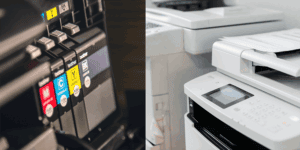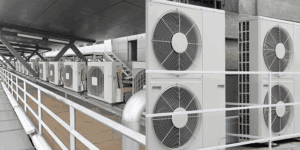In a digitally enlightened age where virtually every consumer has at least one social media account, businesses and brands are more accountable than ever. Not only do they need to turn a profit and deliver value to the customer, but they also need to demonstrate that they can do so with a strong ethical focus.
This digital interconnectivity allows consumers unprecedented access to peek behind the curtain when it comes to the operations and practices that the brands they use employ. And if they don’t feel that a business is doing all that it can to treat its workforce right and take on the responsibility of environmental stewardship, they may well take their business elsewhere.
The good news is that there are lots of ways in which businesses can fly the flag for Corporate Social Responsibility. One of the easiest yet most effective ways is by thinking twice about how they handle their waste.
There is a good chance that you are already eliminating waste paper by encouraging your workforce to shy away from printing things out and recycling any paper and card that you no longer need. You may even be taking steps to recycle your plastic bottles and plastic packaging too. But are you also making sure that your rigid plastics do not end up in landfill waste?
Rigid Plastics can be Recycled too!
That’s right! Non-bottle rigid plastics are also readily recyclable. Unfortunately, not all county and borough councils are equipped to recycle them, and therefore they often end up in landfill waste. When in landfill waste, rigid plastics can leach harmful compounds called micro-plastics into our soil and oceans with disastrous effects on marine, bird, plant and animal life.
The good news is that we have the knowledge, facilities, and passion to ensure that all of your rigid plastics are recycled. What’s more, if you have sufficient bulk we can even pay you for them!
Some examples of Rigid Plastics
Because we as a nation are so reliant on plastics they can be the subject of much confusion and controversy. Which is why we have such a problem with plastic recycling contamination. Many of us are unsure which plastics can and can’t be recycled or just how disastrous plastic contamination can be or how it can result in lorry loads of recycling going into landfill.
With that in mind, let’s make sure that we are all on the same page when it comes to rigid plastics. This is a broad spectrum and can include many different types of non-domestic wastes. Practical examples include:
- Bread Crates and Pallets (these are usually made HDPE or PP plastic)
- High-Density Polyethylene tubs, containers and buckets
- Palettes, crates and shopping baskets and carts
- Electronic housings
- Water cooler bottles
It is clear to see that a great deal of what businesses dispose of is made from different types of rigid plastics. Many businesses are not realising the value of recycling rigid plastic and quite often they end up on the waste pile. Recycling these waste materials can make a huge difference to your business’ carbon footprint. Recycling plastic bottles is great, but it is really just the tip of the iceberg when it comes to dealing with waste plastics sustainably. And with our mixed rigid plastics recycling facilities, we can ensure that all of your rigid plastic waste is responsibly disposed of.
How Rigid Plastic is Recycled
First of all, we establish the load to be recycled so that we can give you a clear idea of what we can pay you. Typically, we will need 12-15 good quality photos of the load for us to get started. Rigid plastics usually need to be baled unless the material is being delivered loose into one of our regional recycling hubs. Once this has been received we will dispatch a dedicated account manager who will arrange for material inspection. After this, we will be able to confirm an accurate buying price.
There are numerous factors that may impact the price of material including market prices, loading weights, volumes, material quality, and the sorting/picking process.
Once you have confirmed that you are happy to proceed, your mixed rigid plastics are collected using a curtain sider vehicle or shipping container. Where possible, plastics are squashed down and baled so greater quantities per load can be sent to the recycling facility.
Here, plastics are dry cleaned and assorted into different polymer types using an optic beam which is capable of determining different plastic types. Once properly separated they are shredded into flakes and any impurities (like paper labels) are removed.
These flakes are then melted down to form polymer pellets. These are perfect raw materials for making all manner of products from packaging to plumbing pipes. Once they are melted down they can be made into virtually anything. As such, bulky rigid plastic recycling is an extremely effective means of reducing avoidable landfill waste.
How does your Business Benefit from Recycling its Rigid Plastics?
Of course, rigid plastic recycling doesn’t just benefit the environment. It benefits your business, too. At a time where consumers are more concerned about environmental matters than ever before, there is great PR value in demonstrating that you are prepared to go the extra mile in disposing of your waste plastics in sustainable ways.
It can also save you money on your business waste disposal and since we are happy to buy all kinds of bulk plastics from rigid plastics to plastic bottles to UPVC window frames, it could even become a revenue stream rather than an expense.
What’s more, when you demonstrate a proactive attitude towards Corporate Social Responsibility you will not only make a big impression with consumers, but you will also have a big impact on your workforce. You will encourage them to think more about sustainability and their environmental stewardship in and out of work. And they will be extra motivated knowing that they are working for a company that cares.



